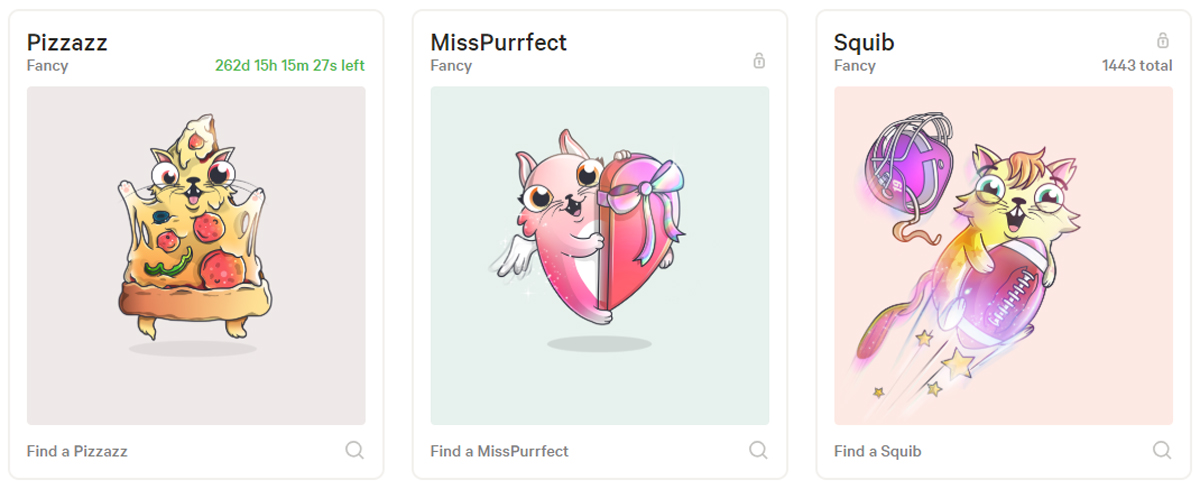Blockchain stocks guide: Here’s everything you need to know

Even you can understand blockchain technology. Promise. Picture: Getty Images
The word “blockchain” brings back bad memories for some ASX investors, but for others it’s still a sector with the potential for growth. Here’s everything you need to know about blockchain stocks on the ASX.
The current market dynamics are markedly different to 2017, when blockchain became the buzzword of the year amid a period of frenzied interest from investors and the general public alike.
Much of that interest was directed at cryptocurrencies and the blockchains that underpin them.
Crypto values climbed rapidly throughout the year, culminating in the bull market peak of December 2017 when Bitcoin reached almost $20,000.
As prices soared, it opened the door for many companies — both in Australia and globally — to get involved in the newest tech craze.
As a measure of the excitement, one company on the US NASDAQ exchange changed its name to include the word blockchain — and saw its stock price briefly quadruple.
But that company (and many other blockchain players) struggled once the bottom first fell out of the crypto market, ultimately destroying millions of dollars of shareholder capital.
Stockhead monitors the performance of 36 ASX blockchain stocks, which either use the technology in their products or offer blockchain-related services.
And of the 36 that were listed in February 2018, it’s been a brutal 12 months. Annual share-price declines across the sector have averaged a whopping 54 per cent.
These days, just having a blockchain product or being blockchain adjacent isn’t nearly enough.
Instead, the market wants companies to provide evidence of a viable commercial use-case for their technology.
Despite that, a handful of ASX blockchain stocks have quietly continued to develop projects that a year on are beginning to show promise, from Security Matters (ASX:SMX) to game maker Animoca Brands (ASX:AB1).
What is blockchain?
By this stage most people probably have a passing interest in blockchain, but it’s worth getting a full understanding of the principles applied in the technology. So what is it? The essential characteristics are as follows:
- Blockchain technology provides a publicly available account of all transactions and activities on a “distributed” ledger.
- The “distributed” part refers to the fact that the data is not collected or held on a single machine, but on a network of computers around the world.
- For each transaction, a new “block” is added to the ledger that is connected to the previous block to form a chain.
- To prevent manipulation and ensure that all copies of the ledger remain the same, each new block must be approved via a consensus algorithm.
Public vs Private
In any discussion of blockchain, it’s important to make the distinction between public and private networks.
Bitcoin is the most famous example of a public (decentralised) ledger. It has consensus rules that help ensure the blockchain can’t be compromised, but can be accessed by anyone.
However, there are many examples of private (permissioned) ledgers. The underlying distributed ledger technology is the same, but there are gatekeepers that determine who gains access.
For example in Australia, one of the most notable blockchain projects has actually been commissioned by the ASX itself.
The exchange wants to introduce a blockchain system to replace its existing infrastructure for clearing and settling share trades.
But importantly, the ASX will still decide who gets to use it (the project has a current timeframe for completion by April 2020).
Private blockchain test cases are also being run in other applications. Think big logistics companies using a distributed ledger to verify and track supply chain data.
Cryptocurrency
Cryptocurrency refers to digital money designed to be secure and anonymous. The 2017 crypto explosion means there are now over 2,000 different coins.
Most of those new cryptocurrencies were formed out of initial coin offers (ICOs), which are like an initial public offering but instead of offering shares an issuer offers digital tokens that can be traded on cryptocurrency platforms or swapped for services.
While a number of aficionados have told Stockhead they’d rather invest in the sector via an ICO, the evidence suggests most of them are a rubbish investment.
Cryptocurrency exchanges also play a key role in the ecosystem, as they compete for market share to provide a platform for traders to buy and sell different cryptocurrencies.
In many ways, the 2018 year in crypto markets was one defined by regulation. Specifically, investors wanted an answer to the question of how crypto assets will meet regulatory standards applied to traditional financial markets.
For example, US and Australian regulators have defined the vast majority of cryptocurrencies as securities, which means they are subject to the more stringent securities laws in those jurisdictions.
So of the more than 2,000 cryptocurrencies that have been created, most Australian crypto exchanges only provide a trading platform for around five of them, to avoid falling foul of securities laws.
As the asset class matures, many analysts see a Bitcoin exchange traded fund (ETF) as the next key step for crypto’s integration into mainstream capital markets.
ASX blockchain stocks
Now that the hype around blockchain and cryptocurrencies has cooled off, many ASX blockchain stocks have had to reassess their business models.
And the extent of that challenge has perhaps been reflected by the change in their recent share-price valuations. Over the past 12 months, here’s how they went:
Performance of ASX blockchain-related stocks in the 12 months to March 14, 2019. This is a table of committed blockchain and crypto stocks, the wannabes who say they’re in, but haven’t done anything yet, and those around whom rumours flow, but which have either said flat out they’re not in, such as Peppermint (ASX:PIL), or have allowed the gossip to flow without addressing the issue.
| Ticker | Name | Price (I) | Market Cap | 12m % return | 6m % return | 1m % return |
|---|---|---|---|---|---|---|
| 8CO | 8COMMON LTD | $0.04 | $6,267,234.50 | -8% | 5% | 10% |
| ACL | ALCHEMIA LTD | $0.01 | $2,597,789.00 | -36% | 0% | -10% |
| AB1 | ANIMOCA BRANDS CORP LTD | $0.10 | $71,445,120.00 | 40% | -2% | 9% |
| CT1 | CCP TECHNOLOGIES LTD | $0.01 | $4,015,503.25 | -64% | -40% | 13% |
| CCA | CHANGE FINANCIAL LTD | $0.06 | $6,227,149.00 | -93% | -53% | -13% |
| CM8 | CROWD MEDIA HOLDINGS LTD | $0.01 | $3,500,436.50 | -84% | -70% | -63% |
| DW8 | DIGITAL WINE VENTURES LTD | $0.01 | $3,475,933.75 | -44% | -29% | 0% |
| DCC | DIGITALX LTD | $0.05 | $24,007,100.00 | -79% | -53% | -11% |
| FFG | FATFISH BLOCKCHAIN LTD | $0.01 | $7,335,484.00 | -74% | -44% | 8% |
| FTC | FINTECH CHAIN LTD | $0.04 | $22,776,936.00 | -71% | -49% | -5% |
| FGF | FIRST GROWTH FUNDS LTD | $0.01 | $10,891,715.00 | -59% | -61% | -13% |
| GTG | GENETIC TECHNOLOGIES LTD | $0.01 | $21,152,926.00 | -36% | -22% | -13% |
| HAS | HASTINGS TECHNOLOGY METALS | $0.17 | $132,272,864.00 | -49% | -11% | 13% |
| ICI | ICANDY INTERACTIVE LTD | $0.08 | $22,890,740.00 | -51% | -5% | 70% |
| IOT | IOT GROUP LTD | $0.00 | $1,762,842.00 | -83% | -50% | 0% |
| KYK | KYCKR LTD | $0.05 | $7,548,244.50 | -77% | -58% | 2% |
| LNU | LINIUS TECHNOLOGIES LTD | $0.05 | $42,270,640.00 | -54% | -38% | 24% |
| MTL | MANALTO LTD | $0.00 | $3,642,388.75 | -86% | 0% | 0% |
| MBM | MOBECOM LTD | $0.11 | $30,048,462.00 | -59% | -15% | 5% |
| NOV | NOVATTI GROUP LTD | $0.25 | $39,398,208.00 | 9% | 11% | 19% |
| OOK | OOKAMI LTD | $0.02 | $7,155,528.50 | -56% | 11% | -13% |
| PIL | PEPPERMINT INNOVATION LTD | $0.01 | $13,826,154.00 | -26% | -26% | 8% |
| PCH | PROPERTY CONNECT HOLDINGS | $0.00 | $1,072,701.00 | -73% | -67% | 0% |
| PPL | PUREPROFILE LTD | $0.03 | $3,001,512.50 | -83% | -80% | -17% |
| RFN | REFFIND LTD | $0.01 | $3,093,000.00 | -70% | -25% | 0% |
| SMX | SECURITY MATTERS LTD (listed Oct-18) | $0.61 | $58,500,000.00 | N/A | 190% | 130% |
| S3R | SERPENTINE TECHNOLOGIES LTD | $0.00 | $2,888,384.50 | -56% | N/A | 33% |
| SRO | SHAREROOT LTD | $0.00 | $2,354,181.50 | -83% | -80% | -50% |
| SHO | SPORTSHERO LTD | $0.07 | $18,918,858.00 | -58% | -50% | -14% |
| TNT | TESSERENT LTD | $0.06 | $8,618,063.00 | -43% | -12% | 9% |
| TSN | TRANSACTION SOLUTIONS INTERN | $0.01 | $18,093,006.00 | -22% | 17% | -13% |
| TTL | TRANSCENDENCE TECHNOLOGIES | $0.02 | $2,432,089.25 | -53% | -12% | -12% |
| YOJ | YOJEE LTD | $0.07 | $61,015,680.00 | -61% | -22% | -9% |
| YPB | YPB GROUP LTD | $0.01 | $6,877,001.00 | -89% | -65% | -36% |
In a word, ugly. An average decline of more than 50 per cent, while seven companies lost more than 80 per cent of their value.
Adjusted for Animoca – which rocketed from 2 cents to 8 cents in early January and held its gains throughout the year — the average fall was more than 50 per cent.
Despite that, there are still over 40 ASX small-cap companies which either say they are (or rumours persist that they are) working on blockchain or crypto projects and products.
And of the 39 blockchain stocks Stockhead monitors, 22 have active projects or investments.
Stockhead has profiled three of those companies to give readers some background on their operations.
Security Matters (ASX:SMX)
Blockchain tech, supply chain integrity and brand protection company Security Matters has been a relatively steady performer — at least by blockchain industry standards — since listing in October last year.
SMX’s technology enables any solid, liquid or gas to be invisibly and irrevocably ‘marked’ using a chemical-based barcode, and ‘read’ using a proprietary reader.
That information is stored in a blockchain record.
And when it comes to decentralised ledgers and permissioned blockchains (public vs private), CEO Haggai Alon was very clear about the use case for his business.
“Blockchain’s gone past the stage of being a ‘cool tech’; now it’s a service that needs to find its commercial solution,” he told Stockhead.
“The proof of concept phase is over; people understand the technology. Any blockchain offering that’s still in the department of ‘cool’ or nice to have, is probably going to vanish.”
When it comes to the application of decentralised blockchain platforms, the idea “is very romantic…but if you have unlimited transparency, at the end of the day you get anarchy”, he said.
Instead, blockchain’s value-add proposition is when you have “agreed players with agreed rules, for complex operations which move fast and are global”, Mr Alon said.
“It allows for critical data to be spread securely among a set amount of players.”
In that sense, the commercial use-case for SMX’s technology is to provide a more efficient solution to logistics tracking — but the application of that tech is restricted only to customers who have permission.
Animoca (ASX: AB1)
Animoca completely avoided the crypto crash in late January 2018 by releasing a massively popular ‘cryptokitties’ game in China.
Cryptokitties lets users breed and trade virtual kittens using the Ethereum blockchain.
In case you were wondering what a virtual kitten looked like:

Animoca’s core strategy is focused on untapped opportunities in the market for in-game and in-app purchases.
As Chairman Yat Siu explained to Stockhead, in-game purchases account for around $70 billion of the revenue pool each year — and that money is spent by just three per cent of the gaming population.
In that sense, an effective in-game monetisation strategy could really move the needle.
So how does blockchain fit into Animoca’s strategy? Siu explains:
“One of the challenges of digital games is that in a sense you don’t actually own what you purchase, right? So if you’re playing your favourite game, if that game’s no longer around then all your time invested, all your digital tokens are no longer there.”
“With blockchain, we can create a service where whatever you earn in the game will be permanent. Now you can trade it or sell it, but it’s something that would still exist on the blockchain forever, even if the game disappeared.”
But don’t the in-game assets rely on the game itself for their value?
“In the initial phase, yes. But even if a game doesn’t have any particular value it still has a community, and that has value as well, because someone else wants to tap into that audience by utilising the items that it has.”
“If you knew in one game, there’s only 1,000 swords. Someone can’t buy it from the game company, they have to buy it from you. So the game creates a marketplace in itself.”
“Therefore, if you can offer an effective blockchain product that provides sound custody and doesn’t die with the game, you can create more interest because it creates scarcity.”
“So that opportunity for consumers to finally buy digital items and own them, is so powerful an argument. But if you’re not a gamer, you may not see the value.”
As an example of gamers who do see value in digital assets, Yiu noted the most expensive Cryptokitty sold for $US140,000. It was expected to fetch $US25,000-$US50,000.
The live auction for Celestial Cyber Dimension is starting. This 1 of 1 Exclusive CryptoKitty features a physical statuette that spans the divide between analog and digital art. Designed by @guilegaspar & @ricmoo.
Live stream: https://t.co/fVw4hAl9Sk
Bid: https://t.co/3CNQQJqpl1 pic.twitter.com/w4S110o54L— CryptoKitties (@CryptoKitties) May 12, 2018
In terms of its application though, Animoca’s use of blockchain differs from that of Security Matters’. Does Animoca’s service use its own private, permissioned blockchain?
“Absolutely not. First thing is we’re chain agnostic,” Yiu said.
For now, Animoca uses ERC-721, the open source standard on the Ethereum blockchain.
“When it comes to the chain approach, you use areas where the value needs to be maintained which ideally is as decentralised as possible and secure as possible, like Ethereum is,” he said.
“We’re not looking to replace the US dollar. We’re looking to supplement our existing business. And for the time being we’re happy using the ERC721’s. We’re not going to create our own standard, that doesn’t make any sense for us because there’s already an ecosystem that’s working on the technology.”
“What blockchain needs isn’t more chains, but more content. More applications. Right now that’s not happening as much, and we think that’s the niche that we can fill.”
DigitalX (ASX: DCC): DigitalX is somewhat unique among blockchain companies on the ASX and that it owns quite a bit of cryptocurrency itself.
The company’s 2018 annual accounts showed it owned just over 433 Bitcoin.
In that sense, it’s a proxy vehicle for investors looking to gain exposure to cryptocurrency assets.
It also means DigitalX didn’t have a great year in 2018, as BTC lost around 80 per cent of its value and DCC shares fell from above 30 cents to below five cents.
In addition to its crypto holdings, the company also provides investment advice in the still-nascent sector of initial coin offerings and other crypto-related capital raisings.
In 2017 it advised on the first Australian ICO for Power Ledger, which issued tokens for a blockchain platform which allows users to trade surplus solar energy and raised an impressive $34 million.
The price of Power Ledger tokens peaked at $1.80 at the height of the crypto craze in January 2018, but have since fallen back to around nine cents as the company tries to establish its business model.
While recent ICO activity has cooled off amid increased regulatory oversight, DigitalX CEO Leigh Travers is still optimistic about the year ahead.
Speaking with Stockhead, he said DCC was looking at opportunities in stablecoins, security tokens — which give the holder rights to a share in traditional assets, such as real estate — and blockchain.
“Conversations with Australian exporters in the farming and mining sector also reveal a desire for provenance of their premium produce, and blockchain will almost certainly be their technology product of choice,” Travers said.
Despite Bitcoin’s rocky ride, Travers said DigitalX comes into 2019 with a “clean balance sheet, and still believes in its product offering.
“Our services are in demand from stablecoin issuers, Security Token Offering (STO) exchanges and business looking to leverage blockchain technology.”
At Stockhead, we tell it like it is. While Security Matters is a Stockhead advertiser, it did not sponsor this article.
UNLOCK INSIGHTS
Discover the untold stories of emerging ASX stocks.
Daily news and expert analysis, it's free to subscribe.
By proceeding, you confirm you understand that we handle personal information in accordance with our Privacy Policy.








